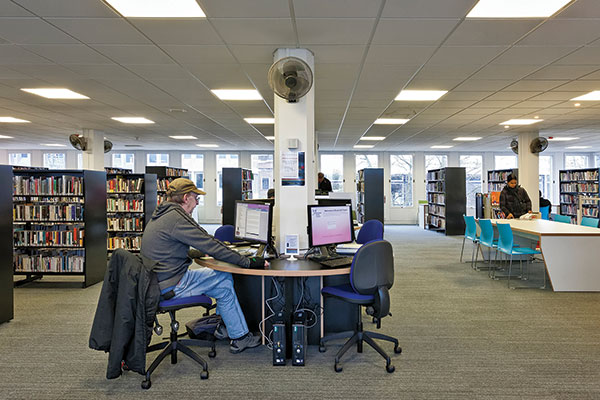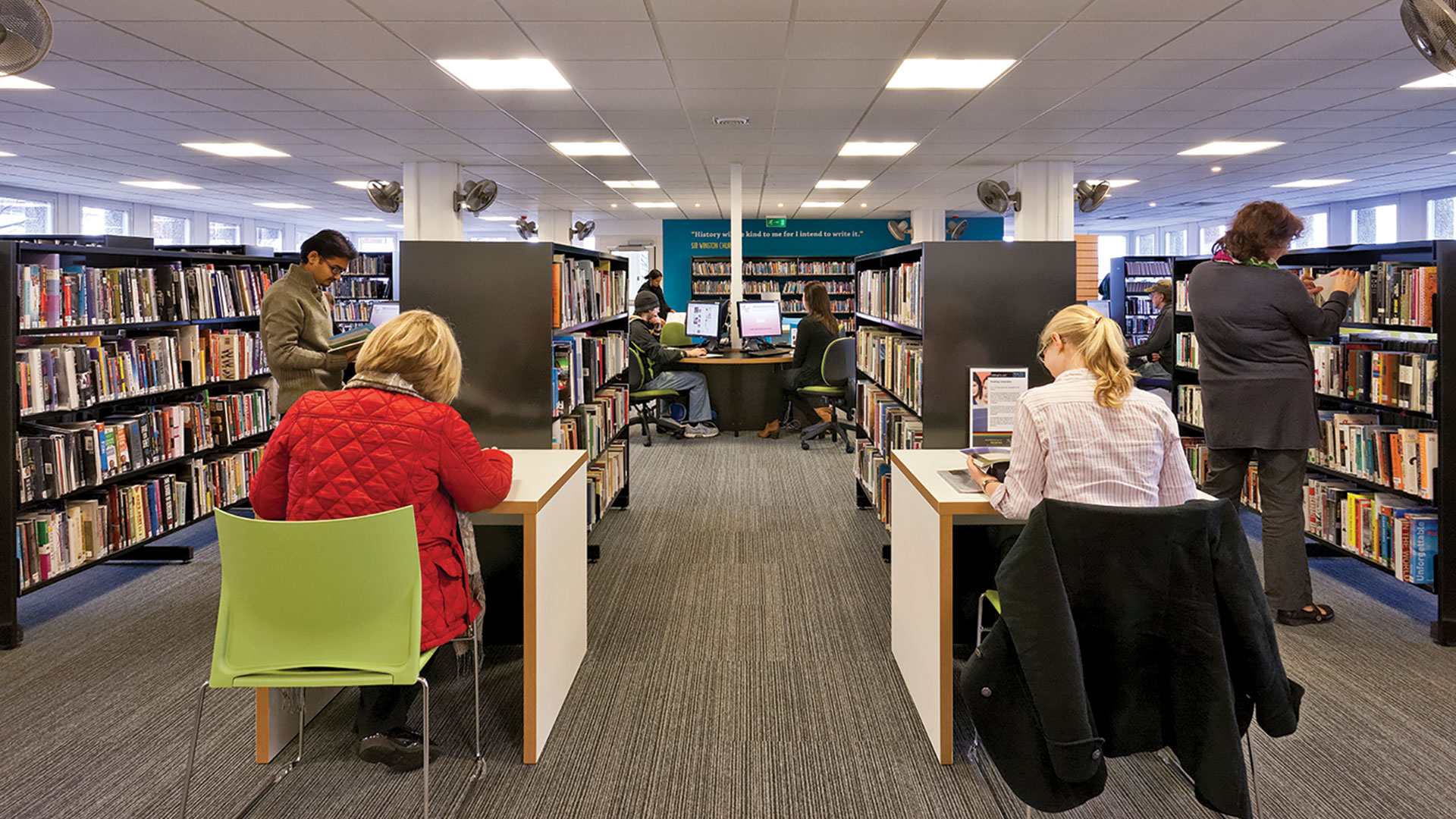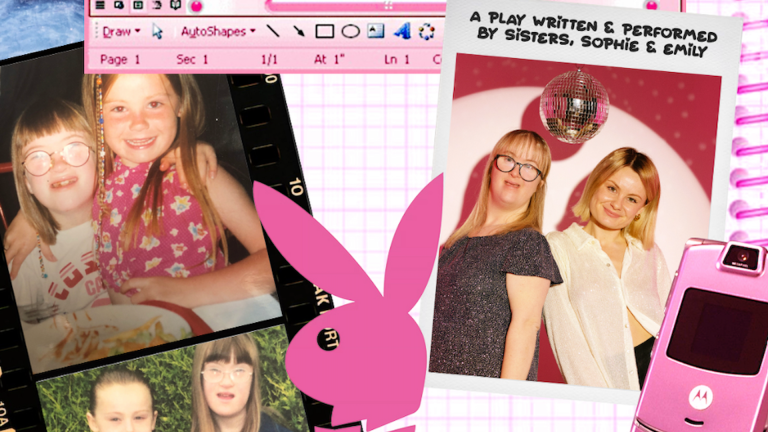I went to school in Bracknell, Berkshire. The town centre itself, built entirely of concrete in the 1960s before decades of slow decay, has just reopened as ‘The Lexicon’, a term which means precisely shit all in this context. I know, you’d think they would’ve looked it up.
The Lexicon Bracknell is a heaving mass of glass and money, overflowing with popular high street brands. Hidden away behind the gurning face of capitalism, Bracknell Central Library is one of the only beautiful brutalist structures left standing. It reminds me of a bleak hangover which has somehow stuck around for three days, or a benign polyp that couldn’t be cut for risk of severing a major artery.
Last year, Bracknell Council announced that despite being forced to use its reserve funds after a reduction of the local government finance settlement, they wouldn’t be closing any libraries. “They are a focal point to the community for all residents, young and old,” admitted Tory councillor Iain McCracken. The consultation the council held on cuts reportedly cost £90,000 by itself. Despite lobbying by anti-austerity protesters, the council swiftly passed £6m of cuts and axed 10 jobs. Attempts to ease the brutality were rebutted by McCracken’s fellow Tory councillor Dr Gareth Barnard, who, according to the local Reading and Berkshire press “invoked new Prime Minister Theresa May and her belief in ‘national conservatism’, saying it was for the council to promote ‘self-reliance’ not do everything”. The word on the street is that the library building WILL remain open, but many of the librarians are to be replaced by volunteers and automation. To “balance the books”, if you will.
To avoid putting the small workforce of Bracknell Central Library at risk – given their uncertain future – I’ve chosen not to prod them for quotes. I did, however, speak to Dawn Finch, who says: “There is a danger of assuming that all it takes to make a great library is to fill a room with books and hope for the best. Library workers make a library great – they are the ones who are daily fitting their service to the unique needs of their users. They are the ones who have dedicated their lives to understanding the many and complex needs of the people who walk through their doors. They are the true assets of our libraries – not books, not computers, not whizzy gadgets, tech or coffee shops – but skilled and experienced library workers.”
Bracknell is indicative of what’s happening country-wide: librarians are kicked out with a sneery offer to return to work as volunteers, with ‘additional support’ from automated machines. A giant fucking Pez dispenser made of metal and wire can’t offer legal assistance, or comfort the sick or lonely. It can’t make eye contact, smile and laugh, or comfort the child being bullied, and it won’t teach you about how to use a computer or the internet, or find a job. It’ll tell you to “PLEASE REMOVE THE UNKNOWN ITEM FROM THE PACKING AREA”.
Advertising helps fund Big Issue’s mission to end poverty
Dawn adds: “I’m hearing all over the country how job descriptions are being changed, and how library workers are being expected to do a great deal more for the same money. This is the hidden hit on their wages.
“To deal with things like the information deficit and the literacy gap, we need more information professionals every day, but they are under such great pressure that many are too exhausted to keep fighting.”
Ah, the information deficit and the literacy gap. As a young(ish) person myself, I feel I have a sense of how things are going for my generation and the one just below us. There’s undoubtedly a connection to be made between the loss of librarians and free information, the pressure on teachers, and the growing fury and ignorance online. Thanks to benefit cuts and austerity measures, services for children and young people are almost as dead as Thatcher’s cat.
I recently overheard this sentence (in a pub of all places): “Kids having access to books at home is a middle-class privilege”. That’s a dangerous way to look at the world. It ties into the fear of difference, distrust of knowledge. I wonder, as a former child, whether it has anything to do with that old schoolyard mentality of “Being smart isn’t cool… being able to PUNCH YOUR ENEMIES’ FACES IN is cool.” As friends who went to grammar schools have informed me, that’s far less the case in an environment where the popularity ranks are in line with the high grades being achieved. So, what in Hagrid’s hairy beanbag has being ‘middle class’ got to do with reading?
According to the Reading Agency, England’s 16 to 24-year-olds have lower levels of literacy than young people in 21 out of 24 countries in the OECD, falling below the USA. We’re also the only country in the OECD – which exists to stimulate economic progress including through education – where 16 to 24-year-olds have lower literacy and numeracy skills than people aged 55 to 65. By 16, the reading skills of English children from disadvantaged backgrounds is, on average, over two years lower than that of kids from the most affluent homes. Poor literacy costs the UK approximately £81bn a year in lost earnings and increased welfare spending. It’s literally idiotic not to support educators and librarians. Meanwhile, the Institute for Fiscal Studies predicts the number of children living in poverty will break records within the next five years. How many actual kids is that, then? That’s 5.2 million kids. Which is only 0.2 million less than… oh yeah, the entire fucking population of Scotland, or the amount of weekly library visits across the UK.
Advertising helps fund Big Issue’s mission to end poverty
A computer can’t make eye contact, smile and laugh, or comfort the child being bullied, and it won’t teach you about how to use a computer or the internet, or find a job. It’ll tell you to “PLEASE REMOVE THE UNKNOWN ITEM FROM THE PACKING AREA”
In this 140 (or 280) character world where it’s Yes or No, In or Out, and Brexit means Breakfast, words, nuance and empathy are more important than ever. We quite clearly need professionals who are able to connect human beings with information.
Facts, not opinions. To teach us how to research properly. How to filter out the Fake News, the political media bias. To look up ‘austerity’ and double-check the dictionary doesn’t read: “Oh, just starve already, pauper”. With schools underfunded and overcrowded, a library can provide much-needed sanctuary.
By profiling the loss of libraries in their dozens, instead of the loss of librarians, the media are handily ignoring the human element. The statistics don’t have faces. They don’t feel, or tell stories, or cry. Who was it that said one death is a tragedy, millions are a statistic? Oh fuck me, it was STALIN, wasn’t it?
Read more about libraries and literacy in this week’s Big Issue World Book Day special as stars from Dermot O’Leary to Clare Balding share a story about sharing a story while actor Timothy Spall talks beating leukaemia and being out of work as well as much, much more.
Watch the Pride special collection.
Our LGBTQ+ film playlist offers a new and interesting angle on LGBTQ+ love and struggle – giving an international overview by taking us inside some of the most and least sexually liberated countries in the world.
Sign Up Now 










